Based on Richard Preston’s New York Times bestseller of the same name, The Hot Zone is inspired by the terrifying true story of the origins of the Ebola virus, and its first arrival on U.S. soil in 1989. When this deadly virus suddenly appears in a research lab outside of Washington D.C., a heroic scientist, played by Emmy® Golden Globe® and SAG Award® winner Julianna Margulies, risks her life to head off the outbreak before it spreads to the human population.
A dramatic, high-stakes, scientific thriller with a superb cast including: Noah Emmerich, Liam Cunningham, Topher Grace, James D’Arcy, and Robert Sean Leonard.
The Hot Zone premiers on National Geographic on Monday 10 June, but before it does, check out this Q&A with Noah Emmerich, who plays Jerry Jax.
What drew you to this role?
NOAH EMMERICH (NE): It was a really well-written script: very thrilling, very suspenseful, a lot of human drama, a lot of science drama that I am interested in. I really enjoy science, and I am interested in diseases, and it is a really fascinating world.
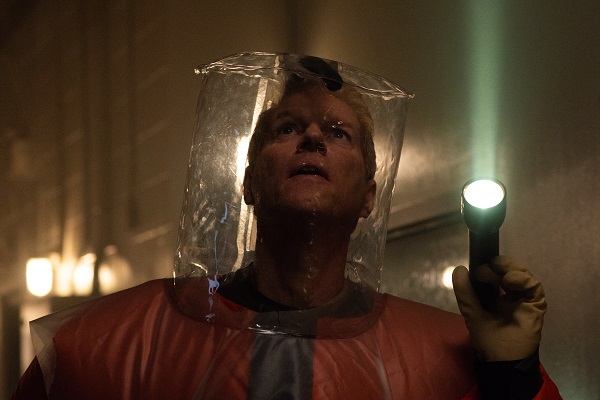
Are there any aspects of Ebola that scare you more than others?
NE: The level of contagiousness and the lack of a cure, the lack of treatment, is a horrifying, terrifying reality. The mortality rate is the scariest of all. And just the unknown mutation and evolution of it — it does feel like it is a potential humanity killer.
Your character steps up and does some really intense work to try and keep others safe. Can you describe some of the personal stakes for Jerry Jaax?
NE: Well, it is interesting. My character does step up and put a lot of himself at risk. I think he is truly terrified of the possibility of losing his wife. They have two children; they are both in this field, which is a sort of risky field in terms of coming that close in proximity to deadly disease. I think he really feels that if one of them is going to be in the hot zone and really at risk of death, it should be him. There is a moment in the script when he talks about that with his wife. He says, “Look, we both know that I am the one who is expendable vis-à-vis our children. They cannot lose their mother.” And that is, I think, what drives him to put himself on the front lines.
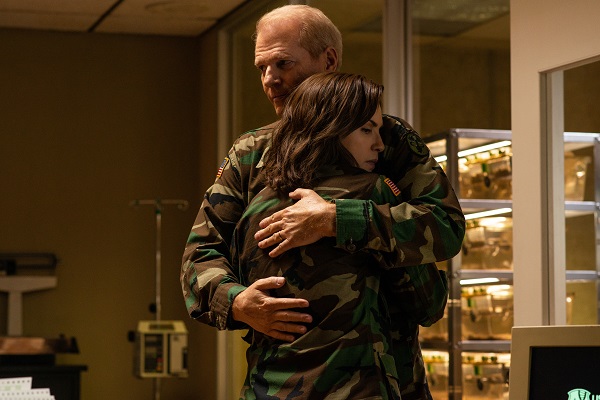
You and Julianna play a married couple who have years of history. How do you approach something like that? How do you quickly get up to speed and give the audience that sense of, “Oh, wow, these guys are an established couple”?
NE: I met Julianna the first day we were filming, so we met half an hour before cameras rolled. And the first scene we shot was actually a pretty emotional scene that needed the history and the weight of this relationship to be interwoven into the dynamic of the characters, of course. You count on the partner to give you that sense, and they count on you to give them that sense. And we both had done our homework — it is the homework of an actor to build those relationships, to make them real, to give them texture, to give them substance and the smell of history. We have been at this a pretty long time, the both of us, and we both came prepared.
The subject of fear seems to be a real undercurrent for this show. In your opinion, can fear be a useful response or tool?
NE: Yes, I think fear can be very useful; it depends on how you harness it. Fear can be paralysing, and you can shut down in the face of fear, or it can be actually quite motivating and inspiring to some degree. Fear is there for a reason evolutionarily; it demands action. And if you are able to not be so overwhelmed by your fear that you are actually called to action, then you take care of the thing that is causing you that fear. So, in some weird way, it is an inspiring emotion. It inspires, hopefully, action that will alleviate the fear, which therefore solves the problem you are confronted with.
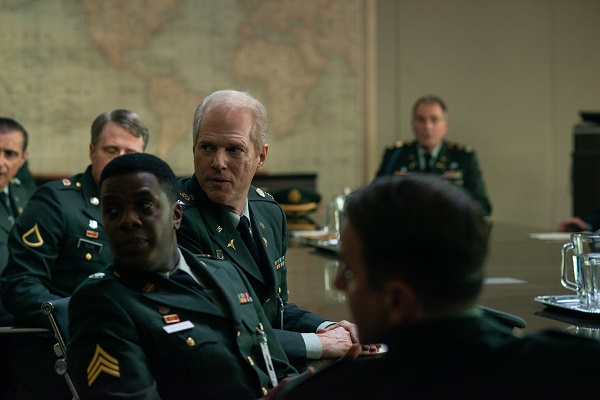
Does fear expose certain flaws or strengths in your character?
NE: In this story I think the fear Jerry has most of all in this world is losing his wife. So, it motivates him to really take action and put himself in harm’s way for the sake of protecting his family. He does not run from it, he is not paralysed by it; it motivates him to step in and do everything he possibly can to protect his family. So, I think that is a pretty admirable response.
What are some of the things that you think will pull audiences in to the first episode? And then, what are some of the things that you think will keep people coming back for the next five?
NE: It is a compelling story. I think people are interested in science, in disease, in the military and true stories. Nat Geo has a built-in audience of science aficionados, nature aficionados. This miniseries combines nature and science and thrillers and mystery, and so it has a lot of components that are compelling for an audience and sort of all blended into one great story. And it feels fresh, and I have not seen anything like this before, so it feels like a new, interesting, compelling drama.

Are there any challenges for you in portraying a real-life person versus a fictional character?
NE: It is a really different pressure to play someone who exists. You think quite a bit about how they are going to receive your performance, because you do not want them to be unhappy. On the other hand, I have not met Jerry Jaax. I am just trying to, hopefully, capture the essence of his motivations and his actions.
The Hot Zone, Monday 10 June, 12.30pm (all six episodes premiering back-to-back), National Geographic, SKY Channel 74. Also available on SKY GO and On Demand.






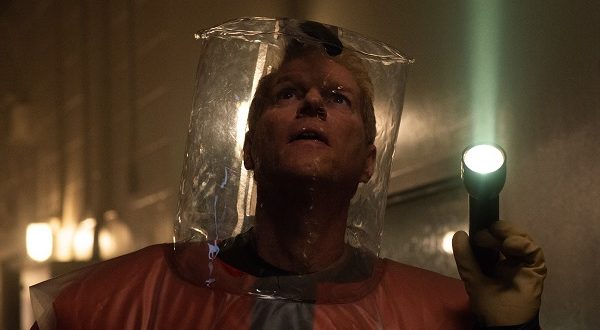
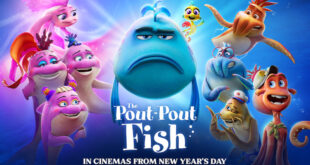
Join the Discussion
Type out your comment here:
You must be logged in to post a comment.